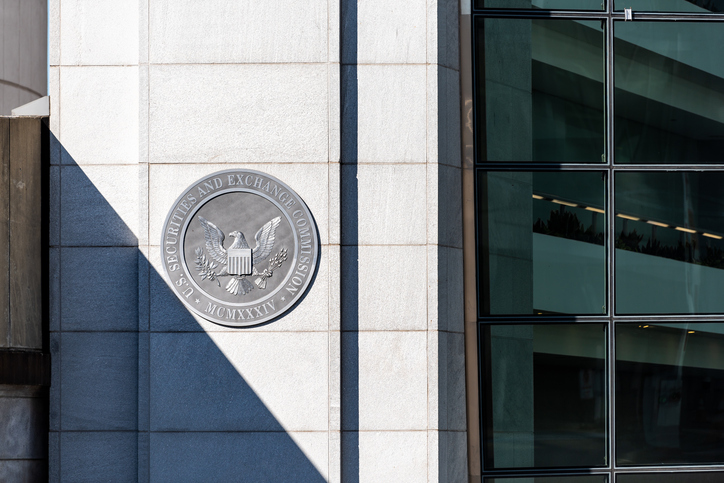Investment Adviser Fraud: Types, Examples & Whistleblowing
Investment adviser fraud occurs when an investment professional engages in deceitful or illegal activities to exploit investors for personal gain. Read this guide to learn about the various types, and the importance of whistleblowing to protect investors.
May 14, 2025

This information is provided for educational purposes only by Kohn, Kohn & Colapinto and does not constitute legal advice. No attorney-client relationship is created by accessing this content. Laws and regulations may change, and this material may not reflect the most current legal developments. If you believe you have a whistleblower claim, consult a qualified attorney to discuss your specific circumstances.
Investment adviser fraud occurs when an investment adviser knowingly engages in illegal activities designed to deceive or manipulate investors into investing money into illegitimate schemes for their own personal gain. These types of illegitimate schemes include Ponzi schemes, affinity fraud, and misrepresentation, among others.
Example
A well-known investment adviser, Alex, targets a community of retired teachers. He leverages his position as a former teacher and active member of the local alumni association to gain trust. Alex promises exclusive access to a “secret” investment opportunity with high returns.
The Scheme
In this scheme, Alex is relying on the following tactics to build trust in the community, and get investors to hand over their cash:
- Affinity Fraud: Alex uses his connection to the retired teachers’ community to establish trust. He leverages their shared experiences and emotions to persuade them to invest.
- Ponzi Scheme Tactic: rather than investing the funds as promised, Alex uses the money from new investors to pay off earlier investors. He creates a cycle of deception, where the returns to early investors are funded by the principal of new investors.
- Misrepresentation and Omission: Alex misrepresents the investment, exaggerating its potential returns and downplaying the risks. He omits crucial information about the underlying investments, making it difficult for investors to assess the true risks involved.
The Outcome
As the number of investors grows, so does the pressure to maintain the illusion of high returns. Eventually, the scheme collapses, leaving investors with significant financial losses. Alex may face criminal charges for fraud, embezzlement, and other related offenses.
Notable Cases
Bernie Madoff (2009)
One of the largest, most damaging cases of investment adviser fraud was that of Bernie Madoff, who ran a massive Ponzi scheme, which led to estimated losses of at least $50 billion.
On March 12, 2009, Madoff admitted guilt to 11 federal felonies, confessing that he had transformed his wealth management business into the world’s largest Ponzi scheme. This scheme enriched himself, his family, and a select group of associates.
Madoff’s scheme disproportionately affected Jewish communities. He often targeted wealthy Jewish individuals and institutions, leveraging his own Jewish identity and connections within the community to gain trust. As we mentioned above, this type of fraud is known as affinity fraud.
Allen Stanford (2009)
Allen Stanford, a Texas financier, was convicted of a massive $7 billion Ponzi scheme.
He used his Stanford International Bank (SIB), based in Antigua, to sell fraudulent certificates of deposit (CDs) promising high returns. However, the underlying investments were nonexistent or significantly less profitable. The funds from CD sales were misused to finance Stanford’s lavish lifestyle, pay off earlier investors, and support his various businesses. Operating in Antigua allowed Stanford to evade stricter U.S. regulations.
He was sentenced to 110 years in prison, and approximately $330 million in assets were forfeited. This scheme devastated thousands of investors, highlighting the importance of investor due diligence and the risks of high-yield, low-risk investment opportunities.
Choosing a Financial Adviser
Investors should always check with FINRA’s BrokerCheck and the SEC’s IAPD website before making an investment decision. They should also ask advisers about their fees and get as much detailed information as possible about the investment. They should also maintain control over their accounts and seek approval for all investments decisions.
Red Flags
There are some other red flags to be on the look out for, including:
- Guaranteed High Returns: Legitimate investments rarely offer guaranteed high returns.
- Pressure to Invest Quickly: Scammers often pressure victims to make hasty decisions without proper due diligence.
- Complex Investment Strategies: Scammers may use complex financial jargon to confuse investors and hide the true nature of the investment.
- Limited or No Documentation: Scammers may avoid providing detailed information about the investment or the investment strategy.
It’s important to remember that investment adviser fraud can take many forms. Always conduct thorough research, consult with a trusted financial advisor, seek a second opinion if you’re unsure of an investment, and be wary of offers that seem too good to be true.
Before investing in anything, you must do your due diligence and proceed with caution, as there are many unscrupulous fraudsters out there looking to add new investors to their scheme.
Reporting Investment Advisers
Glancy Bross offered HYIP investments with unrealistic guaranteed returns. The company claimed to be involved in forex trading, but investigators found no evidence of legitimate trading activity. The SEC ordered Glancy Bross to return over $12 million to investors and pay a $1 million civil penalty.
Reporting High-Yield Investment Programs
The SEC Whistleblower Program incentivizes individuals to report potential securities law violations, including investment adviser fraud. If you have credible information about such misconduct, you can submit a tip to the SEC.
Key points about the SEC Whistleblower Program:
- Monetary Awards: eligible whistleblowers can receive a significant portion of the monetary sanctions collected from the enforcement action, ranging from 10% to 30%.
- Confidentiality: the SEC protects the identity of whistleblowers to ensure their safety and privacy. Whistleblowers may report anonymously with the help of a U.S.-based attorney.
- Anti-Retaliation Protections: under the Dodd-Frank Act provides protections against retaliation from employers and punishes them for engaging in reprisal.
By reporting investment adviser fraud, you can protect investors and contribute to a fairer market. To get a full overview of this program, we encourage you to read our FAQ titled SEC Whistleblower Program: A Guide to Reporting Financial Fraud.
Seeking Legal Assistance
Our team is led by former SEC Commissioner Allison Herren Lee, former SEC Senior Counsel Andrew Feller, and renowned whistleblower attorney Stephen M. Kohn, who have decades of experience in protecting whistleblowers and securing substantial awards.
If you have information regarding an investment adviser engaged in a fraudulent scheme, get in touch with our firm today for a free and confidential case evaluation. In many cases, we don’t get paid unless we get an award for you.
Our Firm’s Cases

$125 Million in Awards
We have successfully represented a number of SEC whistleblowers, preserving their anonymity and securing sizable whistleblower rewards. In one case, we helped our client receive one of the ten largest whistleblower awards ever granted by the SEC.





